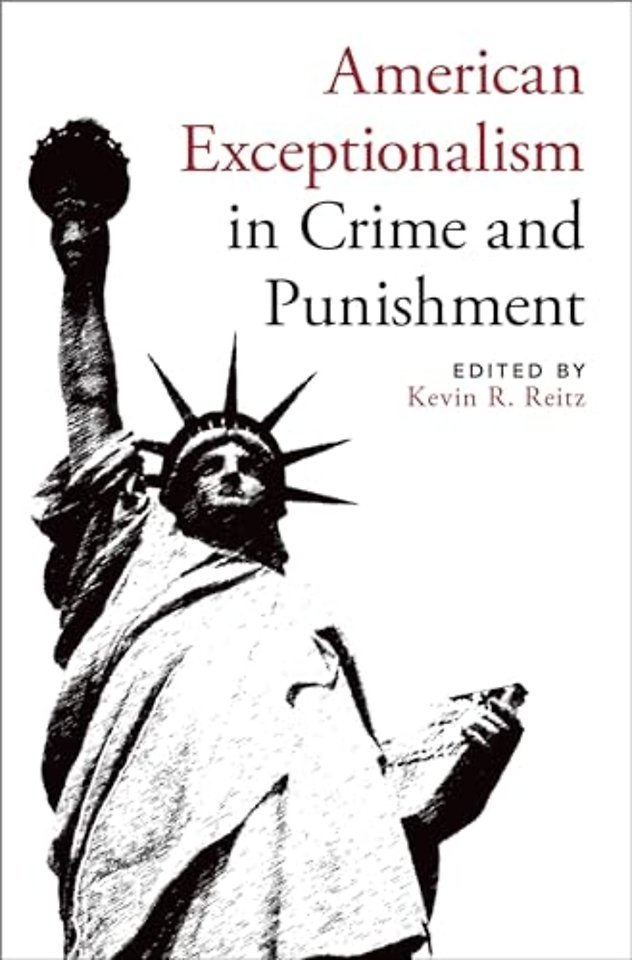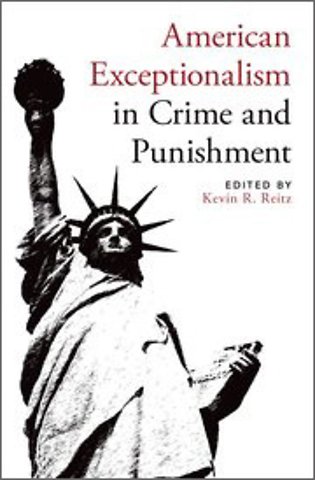American Exceptionalism in Crime and Punishment
Samenvatting
The idea of American exceptionalism has made frequent appearances in discussions of criminal justice policies—as it has in many other areas—to help portray or explain problems that are especially acute in the U.S., including mass incarceration, retention of the death penalty, racial and ethnic disparities, and the War on Drugs. While scholars do not universally agree that it is an apt or useful framework, there is no question that the U.S. is an outlier, when compared with other industrialized democracies, in its punitive and exclusionary criminal justice policies.
This volume of essays deepens the debate of American exceptionalism in crime and punishment through comparative political, economic, and historical analyses, with an orientation toward forward-looking prescriptions for American law, policy, and institutions of government. The chapters expand the literature to neglected areas such as community supervision, parole release, and collateral consequences of conviction; explore claims of causation, in particular the view that the U.S. history of slavery and racial inequality has been a primary driver of crime policy; examine arguments that the framework of multiple governments and localized crime control, populist style of democracy, and laissez-faire economy are implicated in problems of both crime and punishment; and assess theories that cultural values are the most salient predictors of penal severity and violent crime.
With an outstanding list of contributors edited by a leading authority on punishment, this volume demonstrates that the largest problems of crime and justice cannot be brought into focus from the perspective of single jurisdiction, and that comparative inquiries are necessary for an understanding of the current predicament in the US.
Specificaties
Inhoudsopgave
List of Figures and Tables
Introduction, Kevin Reitz
Part 1: American Exceptionalism: Perspectives
Chapter 1: American Exceptionalism in Crime, Punishment, and Disadvantage: Race, Federalization, and Politicization in the Perspective of Local Autonomy, Nicola Lacey and David Soskice
Chapter 2: The Concept of American Exceptionalism and the Case of Capital Punishment, David Garland
Chapter 3: Penal Optimism: Understanding American Mass Imprisonment from a Canadian Perspective, Cheryl Marie Webster and Anthony N. Doob
Chapter 4: The Complications of Penal Federalism: American Exceptionalism or Fifty Different Countries?, Franklin E. Zimring
Part 2: American Exceptionalism in Crime
Chapter 5: American Exceptionalism in Comparative Perspective: Explaining Trends and Variation in the Use of Incarceration, Tapio Lappi-Seppälä
Chapter 6: How Exceptional Is the History of Violence and Criminal Justice in the United States? Variation across Time and Space as the Keys to Understanding Homicide and Punitiveness, Randolph Roth
Chapter 7: Making the State Pay: Violence and the Politicization of Crime in Comparative Perspective, Lisa L. Miller
Chapter 8: Comparing Serious Violent Crime in the United States and England and Wales: Why it Matters, and How It Can be Done, Zelia Gallo, Nicola Lacey, and David Soskice
Part 3
Chapter 9: American Exceptionalism in Community Supervision: A Comparative Analysis of Probation in the United States, Scotland, and Sweden, Edward E. Rhine and Faye S. Taxman
Chapter 10: American Exceptionalism in Parole Release and Supervision: A European Perspective, Dirk van Zyl Smit and Alessandro Corda
11. Collateral Sanctions and American Exceptionalism: A Comparative Perspective, Nora V. Demleitner
Notes
References
Index
Anderen die dit boek kochten, kochten ook
Net verschenen
Rubrieken
- aanbestedingsrecht
- aansprakelijkheids- en verzekeringsrecht
- accountancy
- algemeen juridisch
- arbeidsrecht
- bank- en effectenrecht
- bestuursrecht
- bouwrecht
- burgerlijk recht en procesrecht
- europees-internationaal recht
- fiscaal recht
- gezondheidsrecht
- insolventierecht
- intellectuele eigendom en ict-recht
- management
- mens en maatschappij
- milieu- en omgevingsrecht
- notarieel recht
- ondernemingsrecht
- pensioenrecht
- personen- en familierecht
- sociale zekerheidsrecht
- staatsrecht
- strafrecht en criminologie
- vastgoed- en huurrecht
- vreemdelingenrecht







